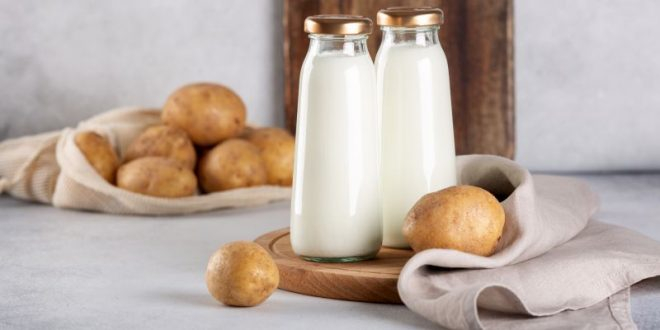Plant-derived proteins have received a lot of attention as an alternative to animal proteins, and they are now widely used in both plant-based diets and sports nutrition products. Nevertheless, few are known about the anabolic (growth-promoting) properties of the potato-derived protein.
In this respect, a recent Maastricht University study compared muscle protein synthesis rates following the ingestion of 30 g potato protein versus 30 g milk protein at rest and during recovery from a single session of resistance exercise in healthy, young males.
As a result, the ingestion of both potato and milk protein increased mixed muscle protein synthesis rates when compared to basal post-absorptive values, with no differences between treatments. In the exercised leg, mixed muscle protein synthesis rates increased after ingesting potato and milk protein, with no differences between treatments. The muscle protein synthetic response was greater in the exercise compared with the resting leg.
“The anabolic response to exercise depends on the exercise stimulus and the postprandial increases in circulating amino acids,” lead study investigator Luc J.C. van Loon, Ph.D., a professor of physiology of exercise and nutrition at Maastricht University Medical Centre said. “In general, plant-derived proteins are considered to have lesser anabolic properties, due to their lower digestibility an incomplete amino acid profile. Our results show that ingestion of 30 g potato-derived protein will support muscle growth and repair at rest and during recovery from exercise.”
These findings add to a growing body of research demonstrating the benefits of potatoes in physical activity and exercise recovery.
“Although further dose-response studies in broader populations are undoubtedly necessary, these data seem to support the use of potato-derived protein concentrate as an effective means to support muscle conditioning,” Luc J.C. van Loon concluded.







